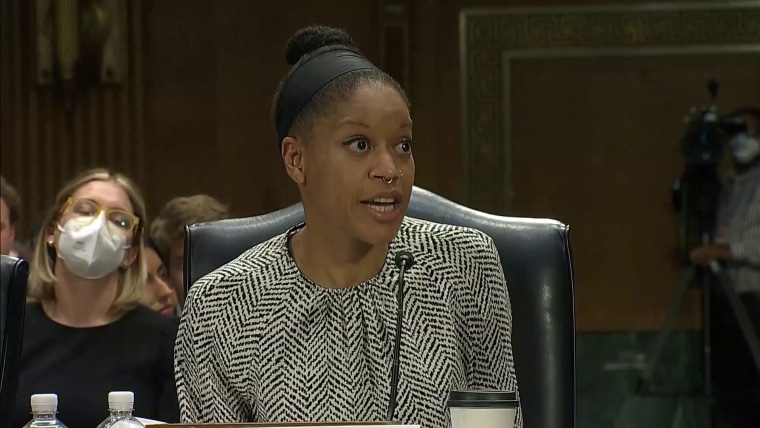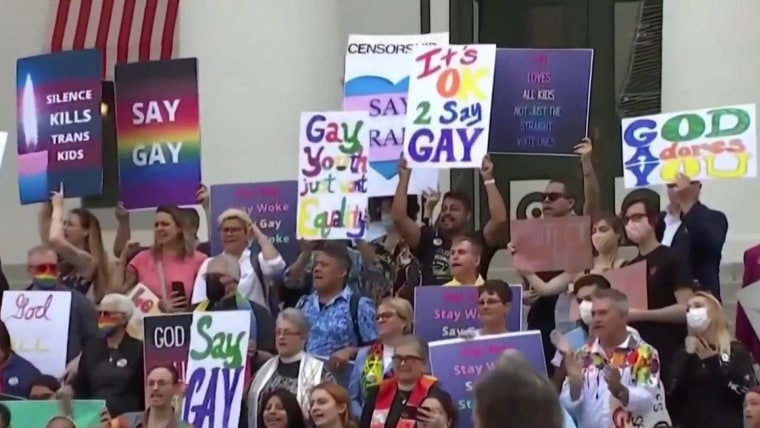The Supreme Court may overturn same-sex marriage. A new bill could enshrine it into federal law
Sixteen Democrats and one Republican senator have introduced “The Respect for Marriage Act,” a bill that would enshrine same-sex marriage rights into law. The bill could get a House vote as early as this week, but it’s unclear if it will attract the ten Republican votes needed to pass through the Senate.
The bill was created in response to conservative Supreme Court Justice Clarence Thomas’ stated wish to overturn Obergefell v. Hodges, the 2015 court decision that legalized marriage equality nationwide.
The Respect for Marriage Act would officially repeal the so-called Defense of Marriage Act (DOMA), the 1996 law that forbade the federal government from legally recognizing same-sex marriages. In its place, the act would require the federal and state governments to recognize same-sex marriages as long as they occurred in states that offer them. If any state refuses to recognize such marriages, the act says, the spouses can sue.
The bill was announced on Monday by House Judiciary Committee Chairman Jerrold Nadler (D-NY), Senator Dianne Feinstein (D-CA), Congressional LGBTQ+ Equality Caucus Chairman David Cicilline (D-RI), Senator Tammy Baldwin (D-WI), and Senator Susan Collins (R-ME). Both Cicilline and Baldwin are members of the LGBTQ community. The bill has the backing of 12 other congressional Democrats including the chairs of the Congressional Democratic, Black, Hispanic, Asian Pacific American, and LGBTQ Equality Caucuses.
Collins was the only Republican to co-sponsor the bill. This fact highlights the difficulty the bill’s sponsors may have in attracting Republican votes in the evenly divided Senate. In order to become law, 10 Republican senators would need to vote in favor of advancing the bill to overcome a guaranteed filibuster. However, mainstream Republicans have begun equating public recognition of LGBTQ people with “grooming” children for pedophilia, making such a bill unsavory to Republicans with the November 2022 midterm elections looming.
“The Respect for Marriage Act will protect same-sex and interracial marriages from any radical or bigoted decision that may come from the current extreme Supreme Court majority,” Cicilline, Chair of the Congressional LGBTQ+ Equality Caucus, said. “I want the LGBTQ+ community to know that this caucus is fighting for them and their right to live freely. This legislation will protect their marriages and ensure they continue to be recognized, even if a future Supreme Court overturns landmark marriage equality decisions.”
“Marriage equality is a constitutional right that has been well established by the Supreme Court as precedent and this freedom should be protected,” Baldwin added. “The bipartisan Respect for Marriage Act will enshrine and protect marriage equality and make sure legal, same-sex and interracial marriages are recognized. I take great pride in being a part of this bipartisan effort to protect the progress we have made on marriage equality, because we cannot allow this freedom and right to be denied.”
“Maine voters legalized same-sex marriages in our state nearly a decade ago, and since Obergefell, all Americans have had the right to marry the person whom they love,” Collins said. “During my time in the Senate, I have been proud to support legislation prohibiting discrimination based on sexual orientation and gender identity, from strengthening hate crime prevention laws, to repealing ‘Don’t Ask, Don’t Tell,’ to ensuring workplace equality. This bill is another step to promote equality, prevent discrimination, and protect the rights of all Americans.”
In the footnote to the recent Supreme Court decision overturning abortion access nationwide, Justice Thomas wrote that the court should “reconsider all of this Court’s substantive due process precedents, including Griswold [the case that granted the right to contraception] Lawrence [the case that struck down anti-sodomy laws], and Obergefell [the case that legalized marriage equality].”
“We have a duty to ‘correct the error’ established in those precedents,” Thomas wrote. If the court overturns Obergefell, it would essentially leave individual states to decide their own same-sex marriage laws. Nearly 30 states have same-sex marriage bans currently on their books.
The Respect for Marriage Act has the support of LGBTQ and allied national organizations including the ACLU, the Center for American Progress, the Equality Federation, Family Equality, Freedom for All Americans, GLAD, Human Rights Campaign (HRC), Lambda Legal, the National Black Justice Coalition, the National Center for Lesbian Rights, the National Women’s Law Center, and PFLAG.
In a statement, HRC Interim President Joni Madison said, “The Defense of Marriage Act — which excluded legally married same-sex couples from accessing the federal rights, benefits, and obligations of marriage — is a stain upon our nation and deserves to be relegated to the trash bin of History. With the Respect for Marriage Act, Congress has the opportunity to right this wrong by creating an inclusive law that also standardizes the mechanism for evaluating when a marriage should be given federal recognition and affirms that public acts, records, and judicial proceedings should be honored across this country.”




